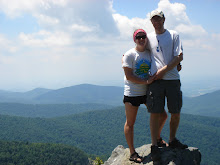I recently made a trip to Jimani, a border town in the Southwest corner of the Dominican Republic. It is the closest Dominican town to Port au Prince, and was quite close to the disaster there. We arrived four days after the earthquake, and had no idea what we would find. We went with the expectations of finding a hospital and dropping off a few supplies that we had purchased. We arrived at the base camp, where the Red Cross as well as the Dominican military have stations. They then directed us to a local hospital that had previously been used for outpatient visits and simple surgeries. Upon arriving, we found 300 patients, all with broken bones - many with compound fractures and open wounds. Sadly, there was only one brave doctor from Puerto Rico along with 6 Portuguese medical students. Overwhelmed, we started to help changing wound dressings, taking histories, splinting, starting IVs, etc... Here is a picture of the makeshift pharmacy.

Patients were continually coming in over the next four days. Groups of relief teams also were beginning to come in. Many of the groups were only there for a short time while others moved on to Haiti. At times, there would be up to 6 trucks and ambulances lined up with up to 10 patients each.

We got to the point where we didn't have any beds for the continuing influx of patients, and began moving the most stable patients to the outdoor chapel.

The associated surgical building was busy day and night. The most critical patients, with femur or pelvis fractures, were first in line for surgery. Not only were we trying to get surgery for most of the now ~1000 patients, but the Puerto Rican government was beginning to fly in critical patients directly from Port au Prince.

Supplies were limited, and we had to make do with what we had. Here is a makeshift suction mechanism to remove fluid from a man's lung.

We had one tank of oxygen with two patients in critical need of oxygen. Here, we spliced two tubes together so that they could share the flow of oxygen.

One thing that we could do for the patients was feed them. Hot food arrived from a local relief group twice per day. It was during meal times that I realized how devastated everyone was. They had nothing left in their country. They had lost many family members, had no house, no city.

No comments:
Post a Comment